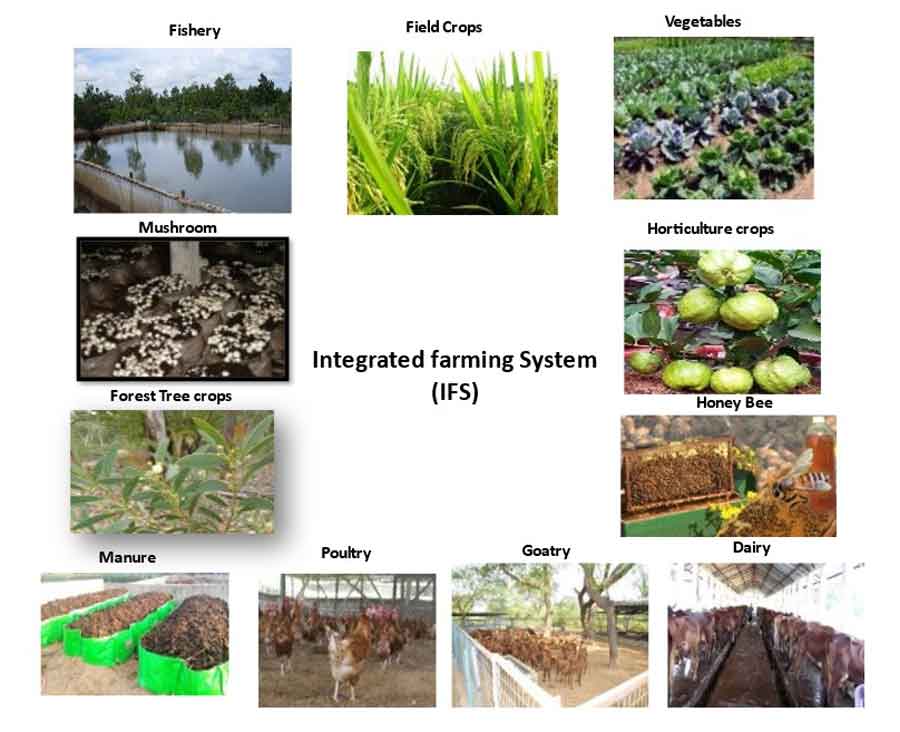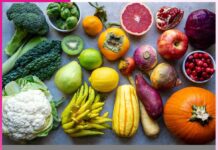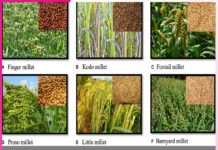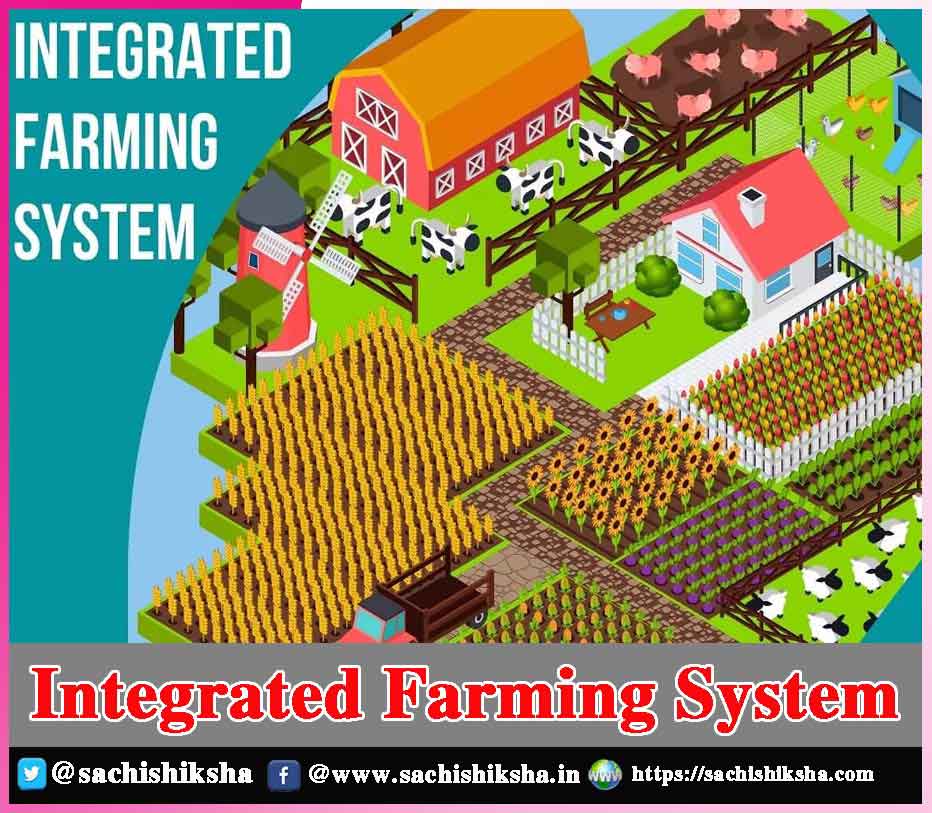Integrated Farming System
Introduction: As we are moving towards more sustainable forms of living, sustainable agriculture is an option that we all should explore. Sustainable agriculture is important because of its healthy quality and its eco-friendly nature. Integrated farming system is one example of sustainable farming.
Integrated farming system involves a holistic approach towards farming. Integrated farming system (IFS) is recognized as a solution to the continuous increase of demand for food production as a result of growing population that is dependent on food and also for providing stability to the income and nutritional security particularly for the small and marginal farmers with limited resources.
Small and marginal farmers together constitute 85% of the total farmers in the country. Hence, the needs of small and marginal farmers have to be looked for. Integrated farming system also results in an increase in yield because of diversification of the farming system. The principle behind integrated farming is that the waste product from one enterprise becomes an input or source that drives the other enterprise. Thus this leads to efficient recycling of waste.
Also Read:-
- Food Security
- The Age Of Ambition
- Basics of Stock Market
- Food Security in India
- Pollution Due to Urbanization
- Deteriorating Air Quality
Table of Contents
No Usage of Chemical Fertilizers:

Advantages of Integrated Farming System
There are many advantages of integrated farming systems. The sum of them are as follows: integrated farming system increases yield per unit area and improves the farm sustainability. It also improves the income of the farmer because of the various allied sectors or enterprises linked to crop farming. A farmer can fetch income through dairy, poultry, apiculture, and much more. It also leads to crop diversification and leads to a better food supply chain, which is very helpful for food security.
Integrated farming also leads to crop fertility and healthy condition of soil because of crop rotation and using cover crops and organic compost. Hence it reduces the usage of fertilizers and pesticides which in turn reduces pollution of soil and water. It also minimizes nutrient losses. It reduces weeds, insect pests and diseases through appropriate crop rotation.
It is also cheaper than other forms of agriculture because of the inherent nature of the farming system which involves waste products from one sector as the input of another sector. Beside being beneficial for a farmer by giving him a stable and a good income, it is very helpful for the food supply chain of the country as it diversifies its nature. The recycling of wastes for production helps to avoid piling of wastes and consequent pollution.
Risk Minimization
It minimizes risk and improves the state of environment. This form of farming is holistic and promotes self sufficiency. It is very advantageous for rural communities comprising small and marginal farmers. It helps in the utilization of national resources efficiently and is very much important for sustainable development. Thus, this system of farming is promising for improving overall farm productivity, profitability by generating good income, generating employment opportunities, conserving natural resources and maintaining the sustainability of agro ecosystem by effectively recycling the farm by-products and efficient utilization of available resources.
Conclusion
Thus, Integrated Farming System (IFS) is an interdependent, interlinked and interrelated, often interlocking production systems. It is based on few crops, animals and related allied subsidiary enterprises in such a way that it maximizes the utilization of nutrients of each system and minimizes the negative effect of these enterprises on environment. In the contemporary times when we are talking about eco-friendly farming and sustainable development this type of farming is very healthy if adopted.













































